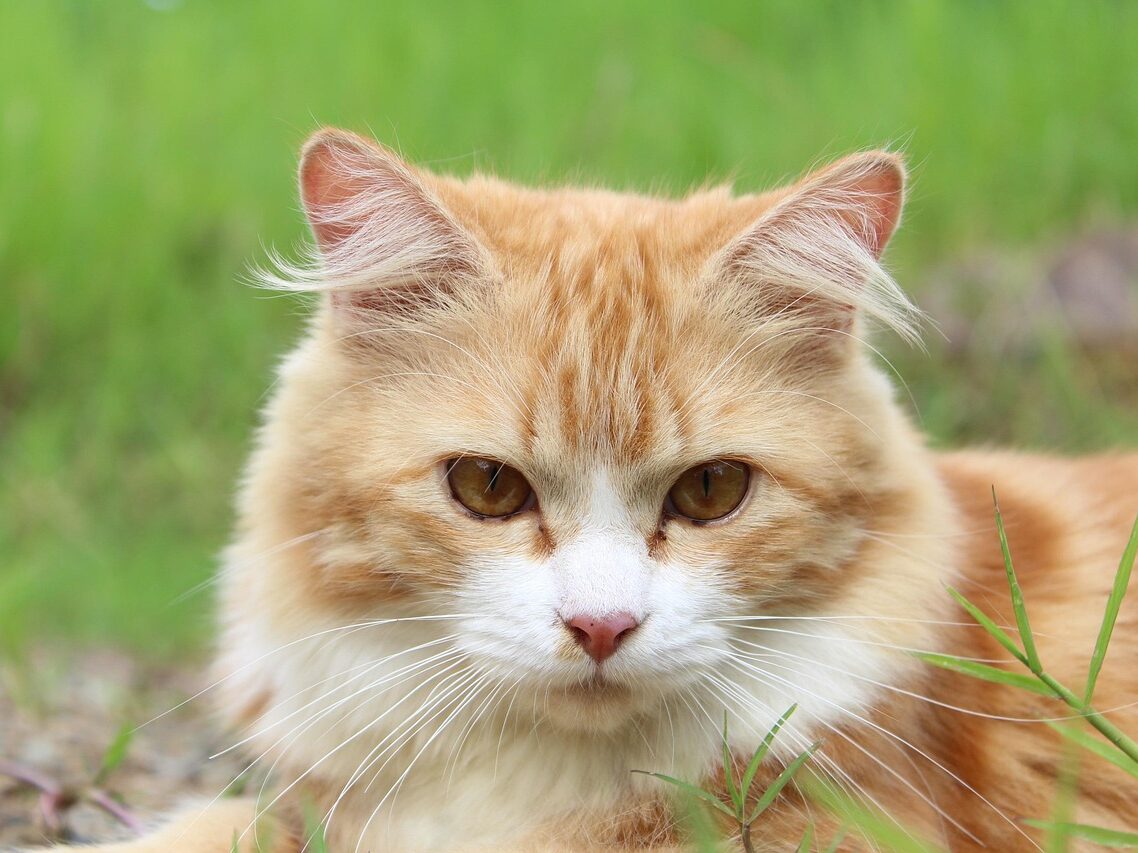
Cats are known for being mysterious and independent, which makes it easy to miss when something’s wrong. But behind those quiet habits, a sudden behavior change can be a red flag for health or emotional issues. These signs might seem small at first, but your cat’s trying to tell you something—and noticing early can make all the difference in keeping them happy and healthy.
Hiding More Than Usual
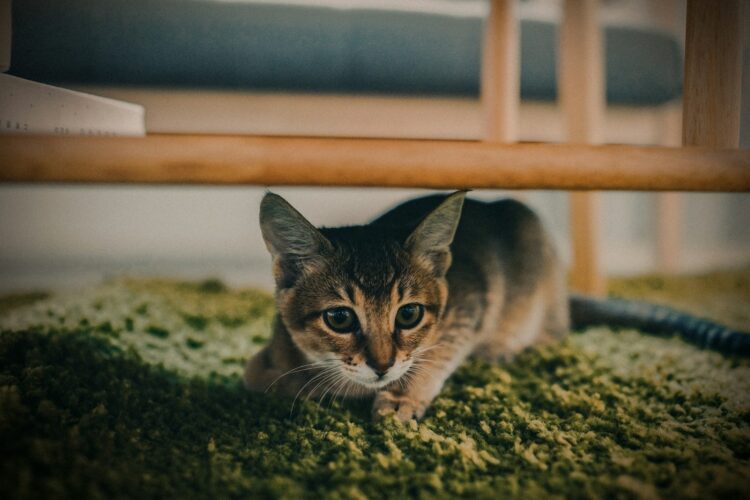
It’s normal for cats to seek quiet corners, but if your cat suddenly starts hiding for hours or avoiding everyone, it could be a sign they’re in pain or stressed. Cats are great at masking illness, so this behavior often means they’re feeling unwell. If they’re avoiding food, skipping playtime, or no longer seeking affection, it’s time to pay closer attention and maybe call the vet.
Sudden Aggression

If your normally calm cat starts hissing, growling, or scratching out of nowhere, something’s not right. Sudden aggression can be linked to pain, fear, or even neurological issues. It’s not just about being moody—your cat may be trying to defend itself from discomfort it doesn’t understand. This behavior change is serious and shouldn’t be brushed off as just a “bad day.”
Change in Appetite
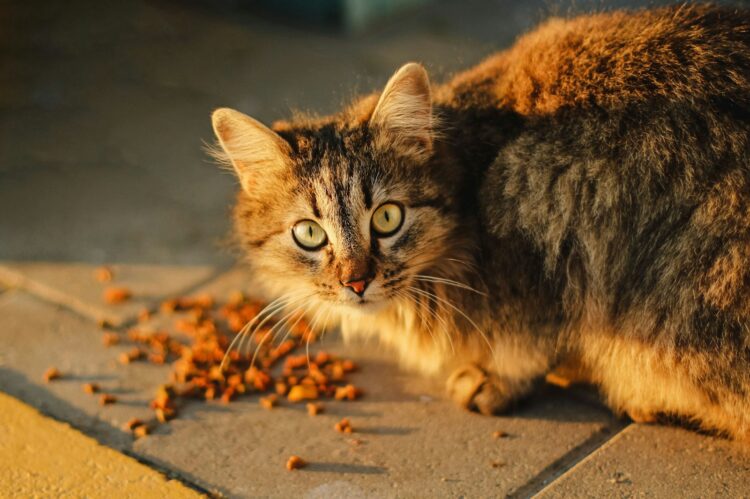
When a cat that normally devours their food suddenly refuses meals—or starts begging constantly—it’s a warning sign. A loss of appetite can point to anything from dental problems to kidney disease. On the other hand, sudden overeating can signal diabetes or thyroid issues. Either extreme deserves attention, especially if it lasts longer than a day or two without a clear reason.
Using the Litter Box Outside the Box
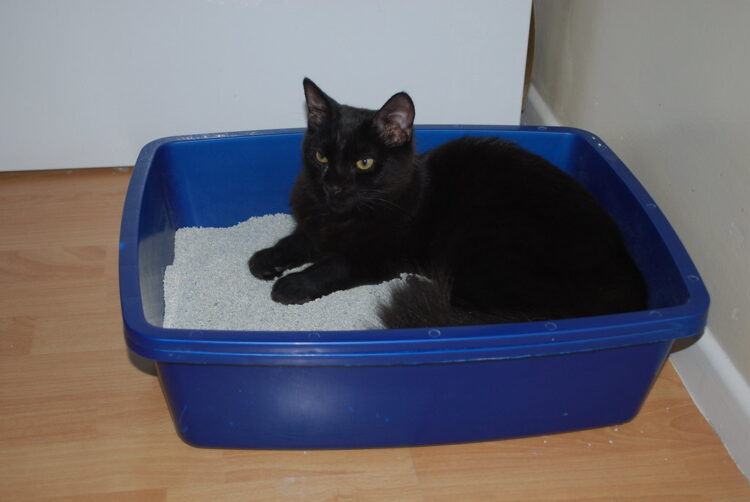
Cats are usually clean and consistent about their bathroom habits, so when they start urinating or defecating outside the litter box, it’s rarely about being “bad.” It could be a urinary tract infection, bladder stones, arthritis, or anxiety. Instead of scolding them, take it as a sign that something isn’t working—either in their body or in their environment.
Unusual Meowing or Vocal Changes
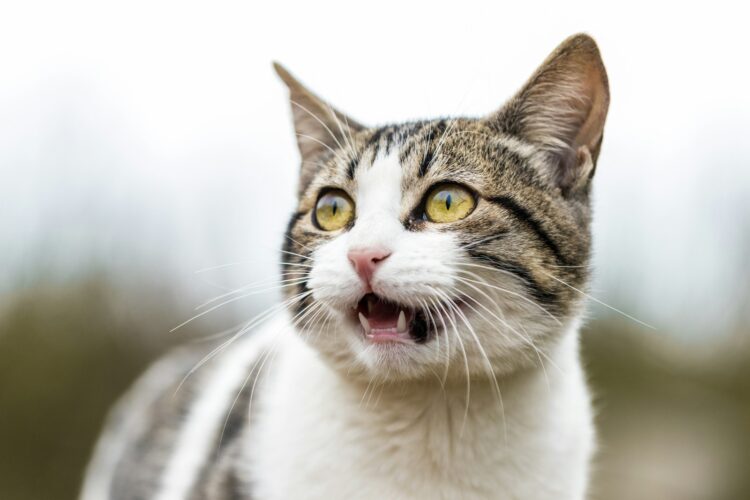
If your quiet cat suddenly starts meowing constantly, yowling at night, or if their voice sounds different, it might be more than just them being chatty. Cats vocalize when they’re in pain, confused, or distressed—especially older cats with cognitive decline. Changes in how and when they meow should always be watched closely, especially if they seem restless or disoriented while doing it.
Over-Grooming or Hair Loss
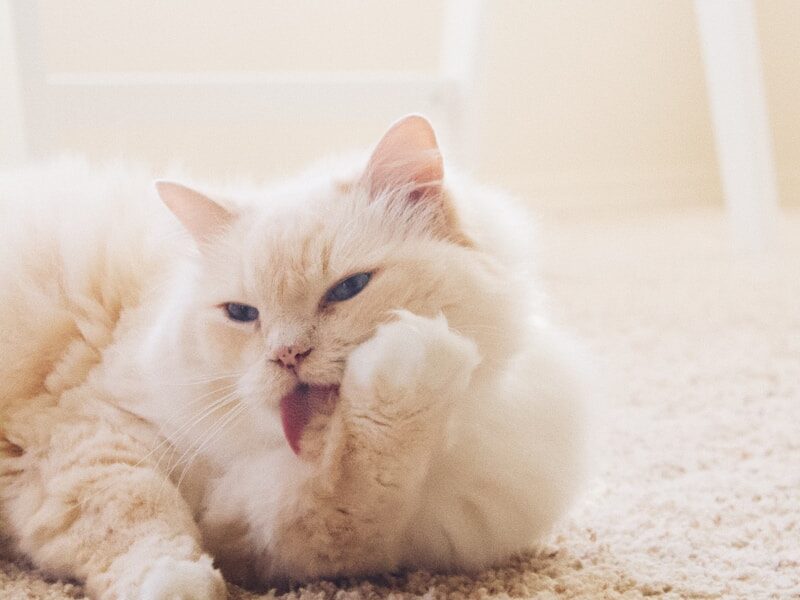
Cats love to groom, but excessive licking or bald patches are not normal. Over-grooming can be a stress response or a sign of skin allergies, parasites, or even pain in a specific spot. If your cat seems obsessed with cleaning one area or leaves fur piles behind, it’s time to look closer. This behavior might be your cat’s way of coping with physical or emotional discomfort.
Sudden Weight Gain or Loss
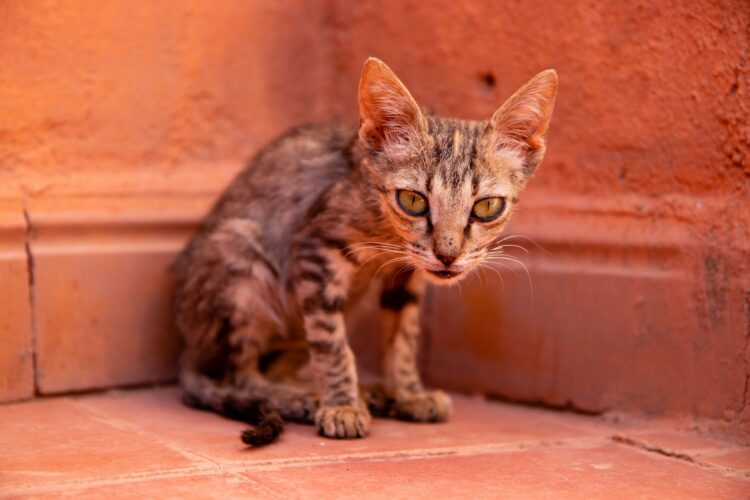
Weight changes that happen quickly should always raise a red flag. Gaining weight might seem harmless, but it can strain joints and organs, especially if it’s from overeating due to stress. On the flip side, sudden weight loss—especially when appetite hasn’t changed—could mean diabetes, hyperthyroidism, or cancer. Cats don’t drop or gain pounds for no reason, so take note and act early.
Drinking Too Much or Too Little
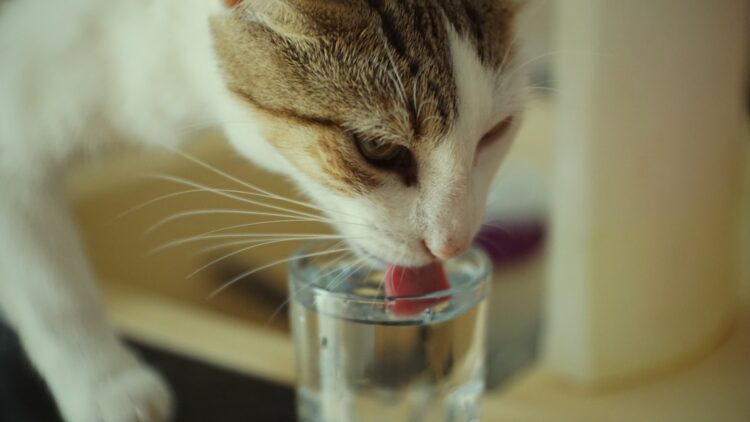
If your cat is suddenly drinking from the faucet, emptying their water bowl more often, or seems disinterested in water completely, these are signs you shouldn’t ignore. Excessive thirst is also a common sign of diabetes or kidney disease, while too little drinking can lead to dehydration, especially in summer weather or older cats. Any major shift in drinking habits deserves a closer look.
Lethargy or Low Energy
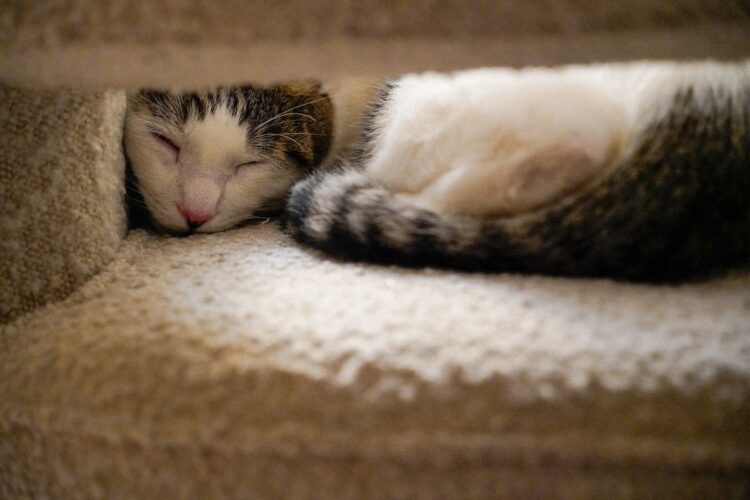
If your playful or curious cat is suddenly sleeping way more than usual or ignoring their favorite toys, don’t assume they’re just lazy. Lethargy is often one of the first signs that your cat isn’t feeling well. It could be caused by anything from infection to heart problems. If they’re not interested in moving around, exploring, or greeting you, something could be off inside.
Bad Breath or Drooling
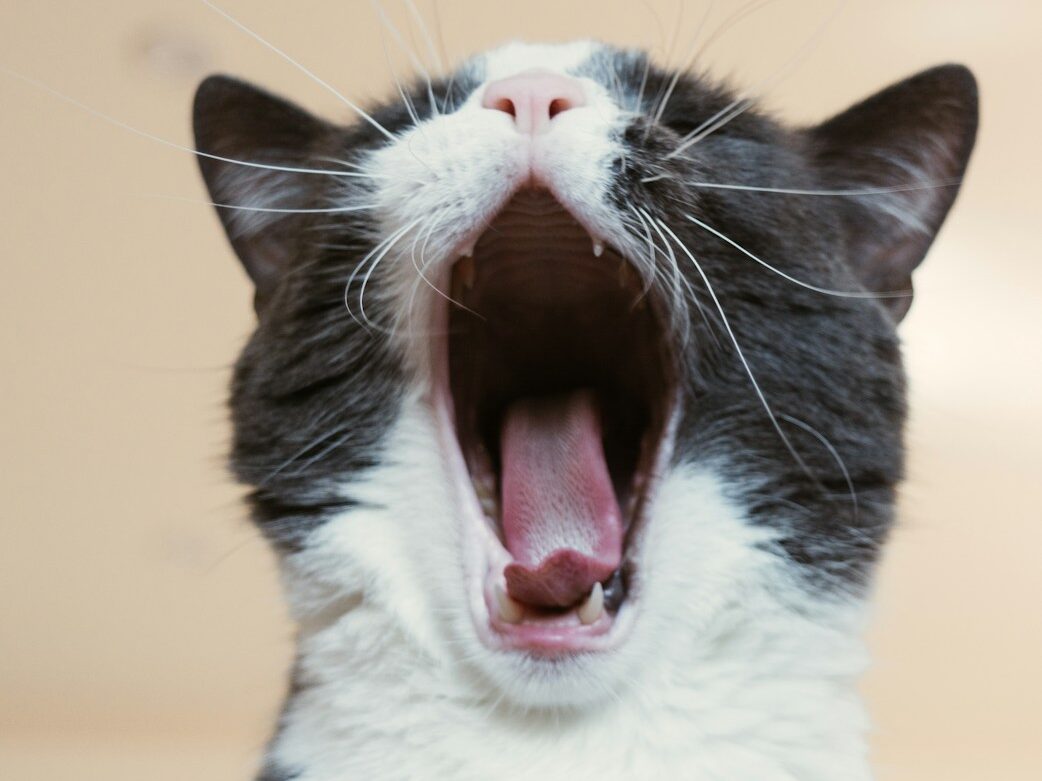
Cats aren’t known for minty-fresh breath, but a foul smell or frequent drooling is not normal. These could signal dental disease, infections, or even organ issues like kidney failure. If your cat avoids hard food, paws at their mouth, or seems uncomfortable eating their teeth or gums might be in trouble. Dental issues can also lead to bigger health problems if left untreated.
Changes in Sleeping Patterns
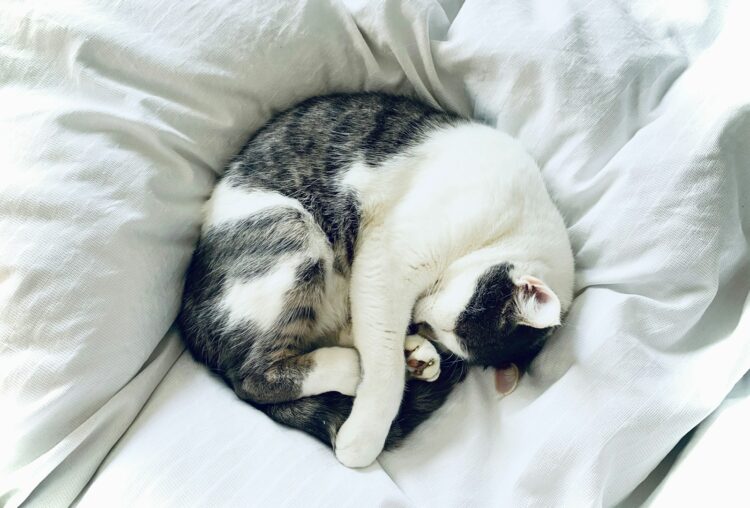
Cats sleep a lot, but if they start sleeping at odd times, in strange places, or seem restless and can’t settle, it could be a sign of discomfort or illness. Older cats, in particular, may sleep less due to cognitive changes or joint pain. Keep track of when and where they nap—especially if it’s suddenly different from their usual routine.
Sudden Fear or Jumpiness
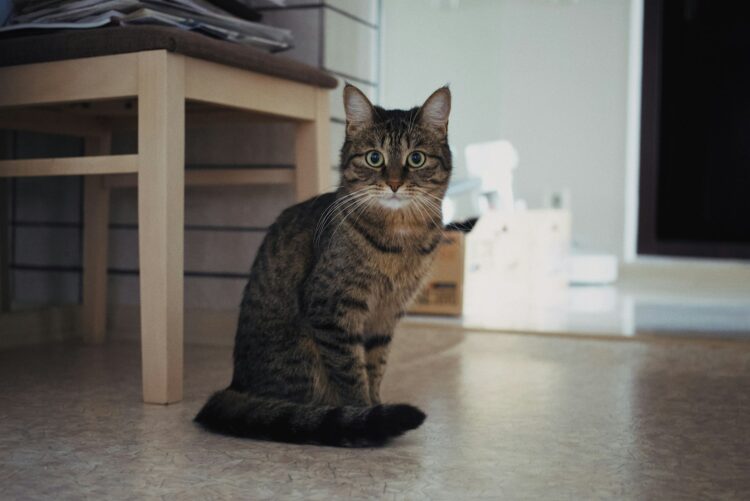
If your cat becomes suddenly fearful of people, loud sounds, or things that never bothered them before, it might point to anxiety or a neurological issue. This kind of behavior can also be a reaction to pain that they associate with certain movements or environments. Watch closely if your once-confident cat starts acting skittish without a clear cause.
Limping or Difficulty Jumping
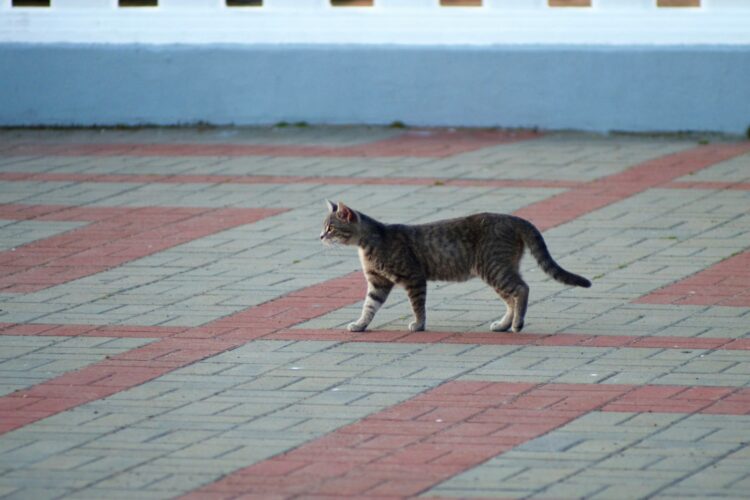
Cats are graceful by nature, so when you see them limping, avoiding stairs, or hesitating before jumping onto the couch, they may be hiding joint pain or injury. Arthritis is very common in older cats, and even younger ones can suffer from sprains or paw injuries. Don’t wait for them to cry out—they often won’t. Their body language is your biggest clue.
Swollen Belly or Unusual Posture
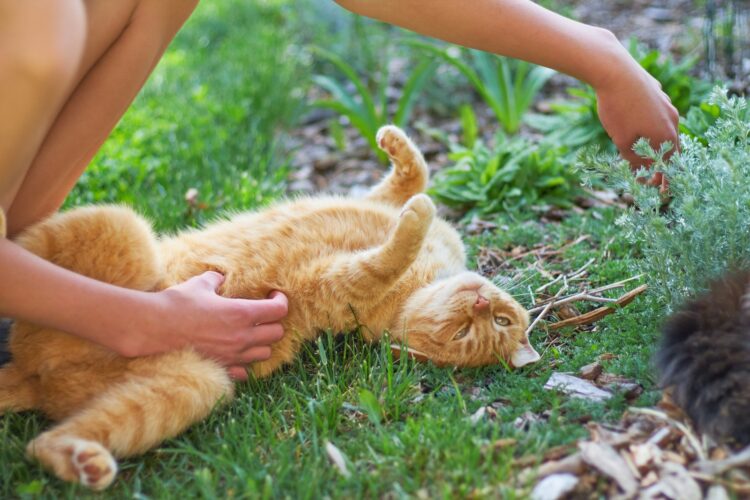
If your cat’s belly looks bloated or they’re sitting in a hunched-up position for long periods, it could be a sign of pain, digestive issues, or fluid buildup. These symptoms often show up in serious conditions like organ problems or gastrointestinal trouble. Cats instinctively try to hide their pain, so changes in posture or body shape should always be taken seriously.
Ignoring You or Acting Distant
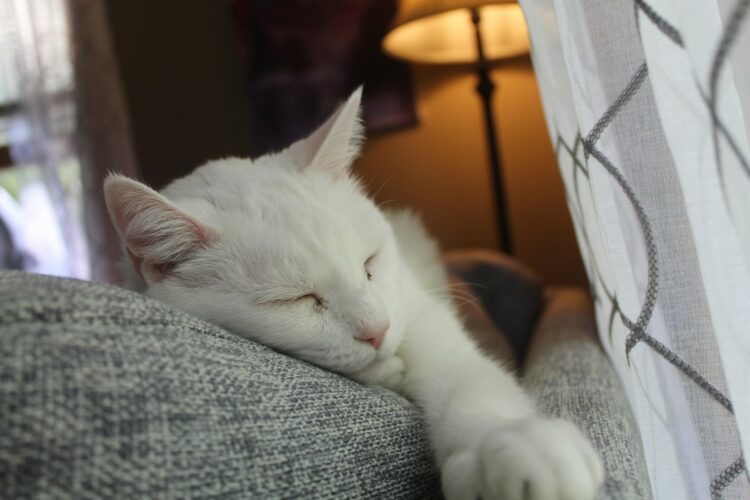
Every cat has their moods, but if your usually affectionate pet starts avoiding you completely—refusing cuddles, not meeting your eyes, or isolating themselves—it may be more than just a bad mood. Emotional changes are often tied to physical discomfort or stress. If your cat feels “off” or like a stranger in their own home, it’s time to trust your instincts and check in with a vet.

